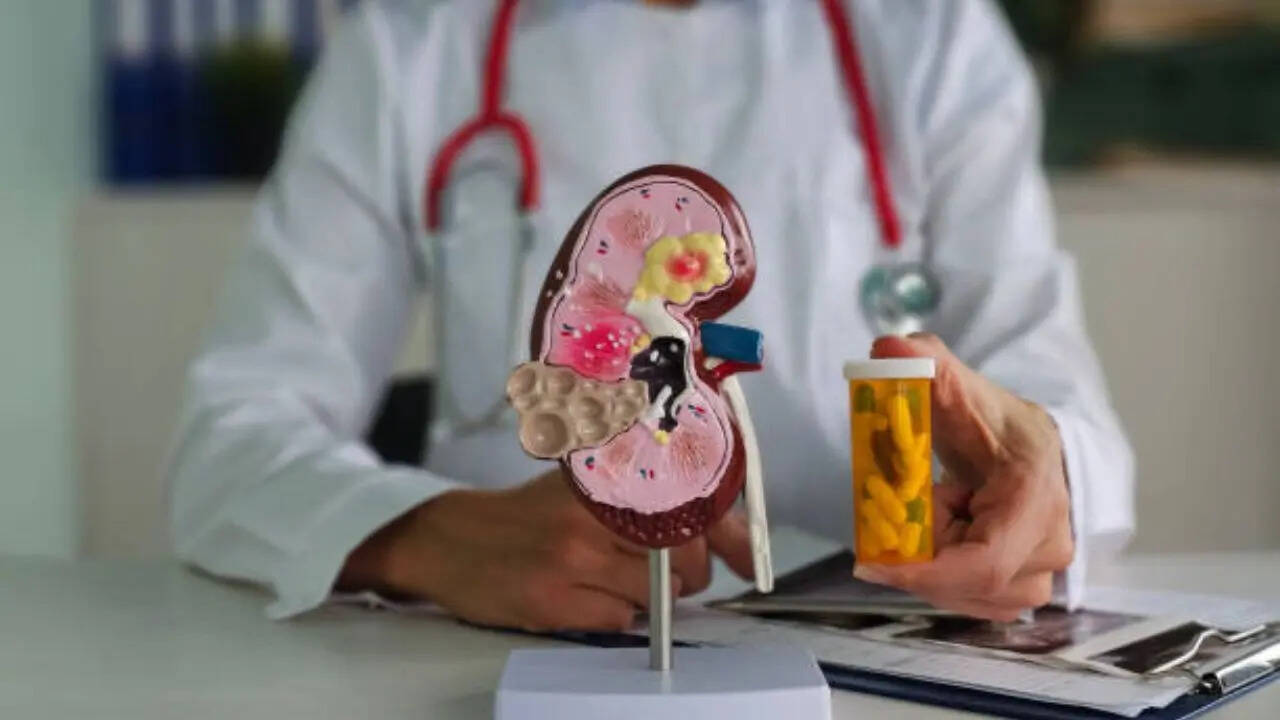Health
Over-the-Counter Painkillers Risk Kidney Damage: Here’s How to Protect Them

The widespread use of over-the-counter painkillers poses significant risks to kidney health, with prolonged use potentially leading to serious conditions. While these medications effectively alleviate pain from headaches, arthritis, and post-operative recovery, their impact on kidney function often goes unnoticed until severe damage has occurred.
Experts indicate that many individuals face an increased risk of kidney failure due to improper painkiller use. The implications of this trend are alarming, as kidney disease is frequently referred to as a silent killer, displaying few symptoms until substantial harm is done.
How Painkillers Affect Kidney Function
Several mechanisms contribute to the detrimental effects of painkillers on the kidneys. One major concern involves the reduced blood flow to the kidneys. Nonsteroidal anti-inflammatory drugs (NSAIDs), commonly found in many painkillers, inhibit the production of prostaglandins, essential for blood vessel dilation. Lower levels of these compounds narrow blood vessels, consequently decreasing renal blood flow.
Another serious risk is interstitial nephritis, an inflammation of the kidney’s filtering units known as nephrons. This condition can arise from allergic reactions to medications, including painkillers.
Long-term use of painkillers, particularly in high doses, can lead to chronic kidney disease (CKD), a gradual loss of kidney function that often goes unnoticed until the damage is significant. As kidney function declines, the body’s ability to balance electrolytes—such as potassium, sodium, and calcium—becomes impaired, potentially resulting in fatigue, irregular heartbeat, or muscle weakness.
Moreover, painkillers can also hinder the kidneys’ ability to conserve water, increasing the risk of dehydration. This further reduces blood flow to the kidneys, compounding existing damage.
Recognizing Early Signs of Kidney Damage
The challenge with kidney disease lies in its often asymptomatic nature. Many individuals do not experience symptoms until considerable damage has occurred. However, early warning signs may include:
– Fatigue or weakness
– Swelling in the legs, ankles, or face
– Changes in urination patterns
– Nausea or vomiting
– Loss of appetite
– Difficulty concentrating
– Shortness of breath
– High blood pressure
– Persistent itching
Awareness of these symptoms is crucial, as they can indicate the onset of kidney damage.
Practical Steps for Kidney Protection
To mitigate the risks associated with painkillers, individuals can adopt several preventive measures. First, it is essential to avoid taking painkillers without a physician’s prescription, particularly for extended periods. Consulting a healthcare provider is especially important for those with pre-existing health conditions.
Adherence to label instructions is vital. It is advisable to refrain from alcohol consumption while using painkillers, as alcohol can adversely affect kidney health. Caffeine should also be avoided, particularly in combination painkillers that contain multiple active ingredients.
Staying adequately hydrated supports kidney function, helping to reduce the risk of damage from painkillers. Finally, individuals should avoid combining different painkillers, as this increases the risk of toxicity.
In summary, while painkillers play an essential role in managing pain, their potential impact on kidney health cannot be understated. By taking proactive steps and remaining vigilant about symptoms, individuals can protect their kidneys and maintain overall health.
-

 World5 months ago
World5 months agoSBI Announces QIP Floor Price at ₹811.05 Per Share
-

 Lifestyle5 months ago
Lifestyle5 months agoCept Unveils ₹3.1 Crore Urban Mobility Plan for Sustainable Growth
-

 Science4 months ago
Science4 months agoNew Blood Group Discovered in South Indian Woman at Rotary Centre
-

 World5 months ago
World5 months agoTorrential Rains Cause Flash Flooding in New York and New Jersey
-

 Top Stories5 months ago
Top Stories5 months agoKonkani Cultural Organisation to Host Pearl Jubilee in Abu Dhabi
-

 Sports4 months ago
Sports4 months agoBroad Advocates for Bowling Change Ahead of Final Test Against India
-

 Science5 months ago
Science5 months agoNothing Headphone 1 Review: A Bold Contender in Audio Design
-

 Top Stories5 months ago
Top Stories5 months agoAir India Crash Investigation Highlights Boeing Fuel Switch Concerns
-

 Business5 months ago
Business5 months agoIndian Stock Market Rebounds: Sensex and Nifty Rise After Four-Day Decline
-

 Sports4 months ago
Sports4 months agoCristian Totti Retires at 19: Pressure of Fame Takes Toll
-

 Politics5 months ago
Politics5 months agoAbandoned Doberman Finds New Home After Journey to Prague
-

 Top Stories5 months ago
Top Stories5 months agoPatna Bank Manager Abhishek Varun Found Dead in Well









